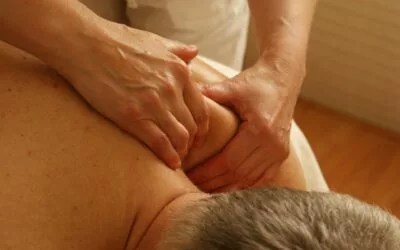A common question frequently asked by majority of person is “Can Doing Cardio in the Morning Burn Muscle?” So today we will explain about this.
One of the most common misconceptions in the bodybuilding community is that morning cardio, especially when performed on an empty stomach, can cause muscle loss due to catabolism of lean tissue.
Because of this myth, many bodybuilders avoid performing cardio in the morning prior to competition as it could negatively affect their appearance on stage.
The truth however, may surprise you. Read on to find out if you should be avoiding morning cardio while on a fat loss diet or not and to learn more about how it may be beneficial to your physique and health instead.
Does Doing Cardio in the Morning Burn Muscle?
In some of the studies it has been found that doing exercise in the morning with empty stomach can burn muscle upto 20%. Workout in fasting or empty stomach increases fat burning as well as muscle burning because in an empty stomach body uses stored glucose and fat as a energy resource which thus leads to weight loss and improve metabolism.(1)
The Theory Behind Morning Fasted Cardio.
The idea behind fasted cardio is that if you fast overnight and work out in the morning, your body will be forced to burn stored body fat for energy. And since you don’t have any food in your system, your body will be more likely to use stored body fat rather than muscle glycogen.
But does this hold true? One study of obese women found that fasted cardio led to greater losses of body fat over time compared with aerobic exercise with breakfast.(2)
However, it’s unclear whether the same effect would be seen in non-obese individuals or those who are well-trained. Further research is needed before we can say whether fasting leads to more losses of fat vs. muscle, but it might be worth experimenting with fasting if you’re trying to lose weight while maintaining lean mass.
In general, there are pros and cons to doing cardio on an empty stomach. On one hand, fasting may lead to greater fat loss as long as you’re not training too intensely or at a high intensity level; on the other hand, low blood sugar levels may lead to impaired performance which could result in poor workout results overall.
What Happens When You Do Fasted Early Morning Cardio?
When you do cardio in a fasted state, your body is forced to burn stored body fat for energy since there is no food available. This can lead to increased fat loss over time. However, if you do too much cardio or don’t eat enough calories, you can start to burn muscle as well.
Eating carbohydrates beforehand and after will help replenish glycogen stores in the muscles so that you have more energy during training and have less chance of burning muscle.
It’s also important to drink plenty of water before, during, and after your workout because dehydration can be just as bad for your muscles as malnutrition!

What To Eat After Your Fasted Cardio Session?
It is important to replenish your body with nutrients after a fasted cardio session. A good post-workout meal should include protein and carbohydrates. Protein helps to repair and rebuild muscle tissue, while carbohydrates help to replenish your energy stores.
Including a source of healthy fat in your meal can also help to promote satiety and prevent overeating. Some common sources of healthy fats are avocados, olive oil, salmon and eggs. If you don’t have time for breakfast before you start your day, make sure to plan out what you will eat for breakfast before working out so that you are prepared.
| Read Now: Top 4 Benefits of Using Hip Circle Bands |
Final Thoughts 0n Fasted Cardio In The Morning.
There are a few things to consider when it comes to doing cardio in the morning. First, if you’re training on an empty stomach, you may not have the energy to push yourself as hard as you would if you had eaten something beforehand.
Second, you may be more likely to burn muscle if you’re already in a calorie deficit. And finally, while fasted cardio can help you lose fat, it’s not necessarily the most effective way to do so. Fasted cardio has been shown to reduce leptin levels and increase ghrelin levels (which increases hunger), meaning that your metabolism will slow down as your body tries to conserve calories.
Instead of eating less and skipping breakfast, there are other ways to increase your metabolism like strength training and drinking plenty of water.
+2 Sources
Freaktofit has strict sourcing guidelines and relies on peer-reviewed studies, educational research institutes, and medical organizations. We avoid using tertiary references. You can learn more about how we ensure our content is accurate and up-to-date by reading our editorial policy.
-
1 Effects of aerobic exercise performed in fasted v. fed state on fat and carbohydrate metabolism in adults: a systematic review and meta-analysis; https://www.cambridge.org/core/journals/british-journal-of-nutrition/article/effects-of-aerobic-exercise-performed-in-fasted-v-fed-state-on-fat-and-carbohydrate-metabolism-in-adults-a-systematic-review-and-metaanalysis/0EA2328A0FF91703C95FD39A38716811
-
2 Body composition changes associated with fasted versus non-fasted aerobic exercise; https://www.ncbi.nlm.nih.gov/pmc/articles/PMC4242477/









































 Workout
Workout

 Meditation
Meditation






 Podcast
Podcast
 E-book
E-book













This is impactful
Thank you..